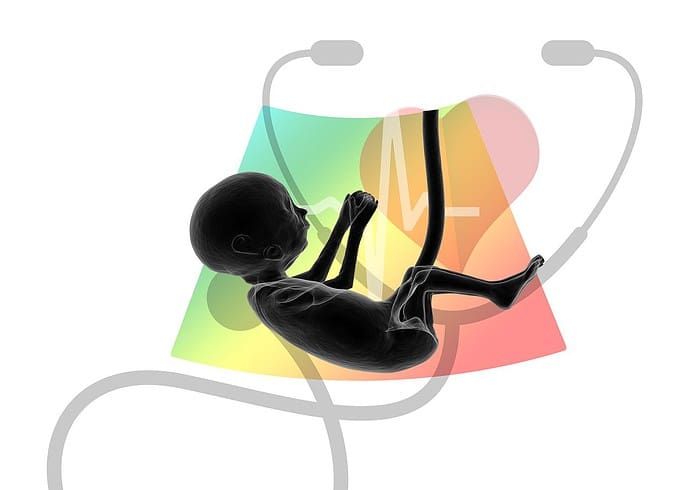Last Updated on October 10, 2024 by The Health Master
Task Force
The Pre-Conception and Pre-Natal Diagnostic Techniques (PC-PNDT) Act, aimed at preventing foetal sex determination, have been an integral part of the Indian legal framework since its legislation on September 20, 1994.
The recent formation of a task force by the Karnataka government, headed by the state health and family commissioner, brings a renewed focus on the effective implementation of this crucial act.
Task Force Origins and Objectives
The need for such a task force arose in the aftermath of a shocking prenatal sex determination racket uncovered across Bengaluru, Mandya, and Mysuru districts.
Disturbingly, a doctor and lab technician were arrested for allegedly conducting 900 illegal abortions in just three weeks.
This revelation prompted the Karnataka government to establish a dedicated task force.
Understanding the severity of the situation, the task force aims to establish a robust system for regular spot inspections.
The government envisions this move as a proactive measure to identify and address challenges in PC-PNDT Act implementation, ultimately curbing female foeticide and rectifying the declining sex ratio.
Navigating Challenges Amidst Pandemic Resurgence
Despite the pressing need for such a task force, its formation was delayed, attributing the decision to the resurgence of COVID-19 cases.
Minister for health and family welfare, Dinesh Gundu Rao, explained this delay during the Legislative Sessions in Belagavi, highlighting the government’s prioritization of pandemic-related concerns.
Task Force Composition and Role
The newly formed task force comprises key officials, including the state mission director under the National Health Mission, state health director, reproductive child health director, deputy director of family welfare, and deputy director of Medical Acts.
Notably, discussions are underway to include the police department in a manner similar to the Tamil Nadu model, emphasizing the need for enforcement.
In this context, Karnataka health commissioner Randeep D stated that a decision regarding police involvement would be made after careful consideration of the successful Tamil Nadu model.
Empowering the Task Force: Enforcement and Monitoring
The task force holds significant authority, empowered to monitor the:
- State Appropriate Authority,
- State Inspection and Monitoring Committee,
- State Advisory Board, and
- District-level committees.
Regular review meetings, conducted every three months, will ensure ongoing oversight.
Additionally, the task force will scrutinize medical terminations of pregnancies during the second trimester and recommend amendments to the PC-PNDT Act when necessary.
Reflecting on the PC-PNDT Act’s History
The PC-PNDT Act, rooted in its legislation in 1994, aimed to prohibit prenatal diagnostic techniques for sex determination.
The recent task force formation underscores the government’s commitment to fortify the act’s implementation, acknowledging the evolving challenges in the healthcare landscape.
Disclaimer: This article contains information derived from the source mentioned below. Our team utilized an AI language model to rewrite and present the news or article in a unique format.
FAQs
- **Why was there a delay in forming the task force for PC-PNDT Act implementation in Karnataka?
- The delay was attributed to the resurgence of COVID-19 cases, prompting the government to prioritize pandemic-related concerns.
- **What triggered the formation of the task force?
- A prenatal sex determination racket uncovered in Bengaluru, Mandya, and Mysuru, where a doctor and lab technician were arrested for conducting illegal abortions.
- **Who heads the newly formed task force?
- The task force is headed by the state health and family commissioner.
- **What role does the police department play in the task force?
- Discussions are underway to include the police department in a manner similar to the successful Tamil Nadu model.
- **How often will the task force conduct review meetings?
- The task force will conduct review meetings once every three months.
DCGI to Blood Centres: Comply with revised guidelines for recovery of processing charges
The Indian Pharmacopoeia Commission: Bidding for Pharmaceutical Impurities
Govt revises Schedule M: Revolutionizing Pharmaceutical Manufacturing
New class of antibiotics developed to fight drug-resistant bacteria
USFDA approval granted for this generic drug to treat diabetes
Gujarat FDCA: Obtain Online Non Conviction and Performance Certificates
CDSCO Directs GSK to Submit Data for Belantamab Mafodotin Trial
NPPA’s Directive: Streamlining Drug Formulation Pricing
Govt Job: For M.Pharm, Pharm.D under (IPC) Indian Pharmacopoeia Commission











